15 Cheap and Fresh Herbs to Make Your Meals Healthier

We won't deny that cooking is "thyme consuming." (Ha! Get it?) Many of us do it two to three times per day and according to recent estimates, Americans spend about six hours per week chopping, roasting, and basting—which is a lot, albeit well-worth it.
By now, you've likely heard about the many benefits of whipping up home-cooked meals. Not only do they have fewer calories, sugar, and sodium, they're more often than not, they're free of additives and chemicals, too. Cooking at home also gives you the opportunity to get more nutrition per calorie, which is a major aspect of trimming down the healthy way. One of the easiest ways to do this? Add fresh herbs like cilantro, basil, and sage to your go-to dishes. It's not just a low-cal and inexpensive way to keep your taste buds interested; it's also an easy way to bolster your health and ward off disease—especially when you use them in place of salt, sugar, and excess fat.
Why do we specifically say fresh herbs? While both dried and fresh herbs contain health-protective vitamins and antioxidants, the fresh stuff packs more of a nutritional punch, according to a 2011 Chinese study, making them well worth the purchase—especially since you can score an entire bushel of fresh herbs for less than $3! Worried you won't use up all of the fresh stuff before it turns bad? Chop up the leftover herbs and pop them into an ice cube tray with some olive oil. This way you can just pop out a cube and toss it into saucepan or baking dish next time you want to make a sauté or roasted dish.
Ready to get cooking? Read on to find out how to use some of the most popular fresh herbs and learn about their health benefits, too! And for even more ways to cook your way to a healthier life, don't miss these 20 Cooking Tips That Will Change Your Life!
Basil
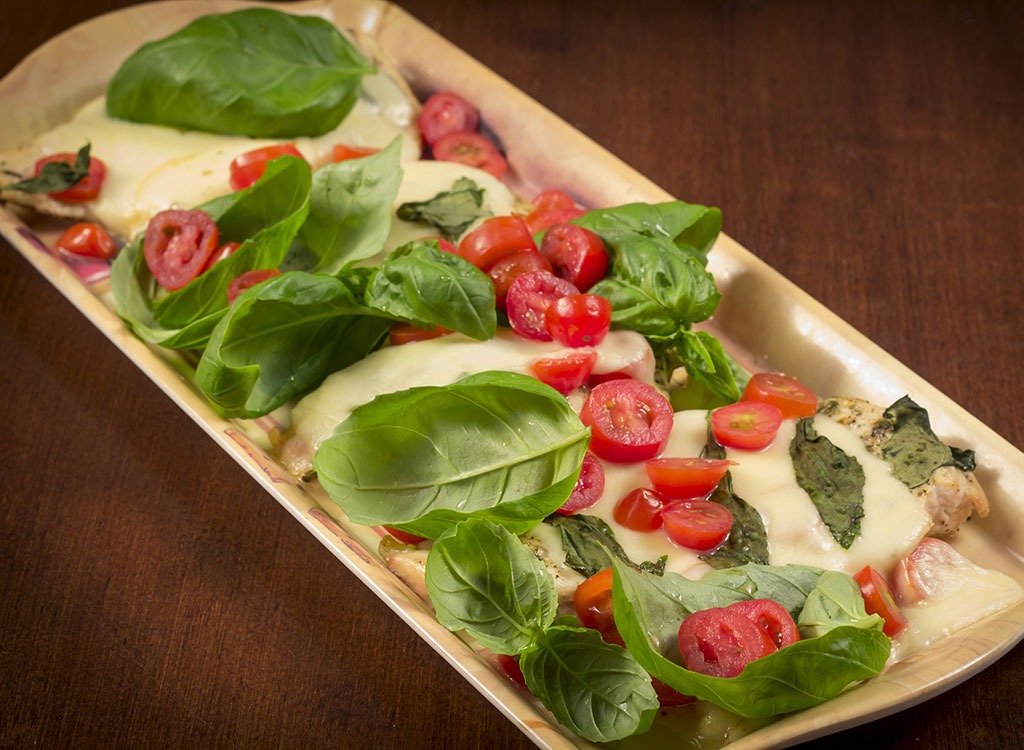
Price: $2.49/bunch
Health Benefits: The Swiss Army knife of the herb section, basil has antioxidant, antimutagenic, antitumorigenic (inhibits the formation of tumors), antiviral, and antibacterial properties. All this and a pleasing aroma and flavor, to boot? No wonder it's one of the most popular culinary herbs in the world!
Use It In: Soups, stews, tomato and egg dishes, salads and salad dressing, and of course, Italian dishes like the chicken Caprese pictured above. Find the recipe and more delicious eats in our report, 17 Protein-Packed Dinners.
Eat This! Tip
Store your basil in a glass of water on your kitchen counter. Putting basil in the refrigerator can discolor the leaves, according to a University of Illinois report.
Bay Leaves
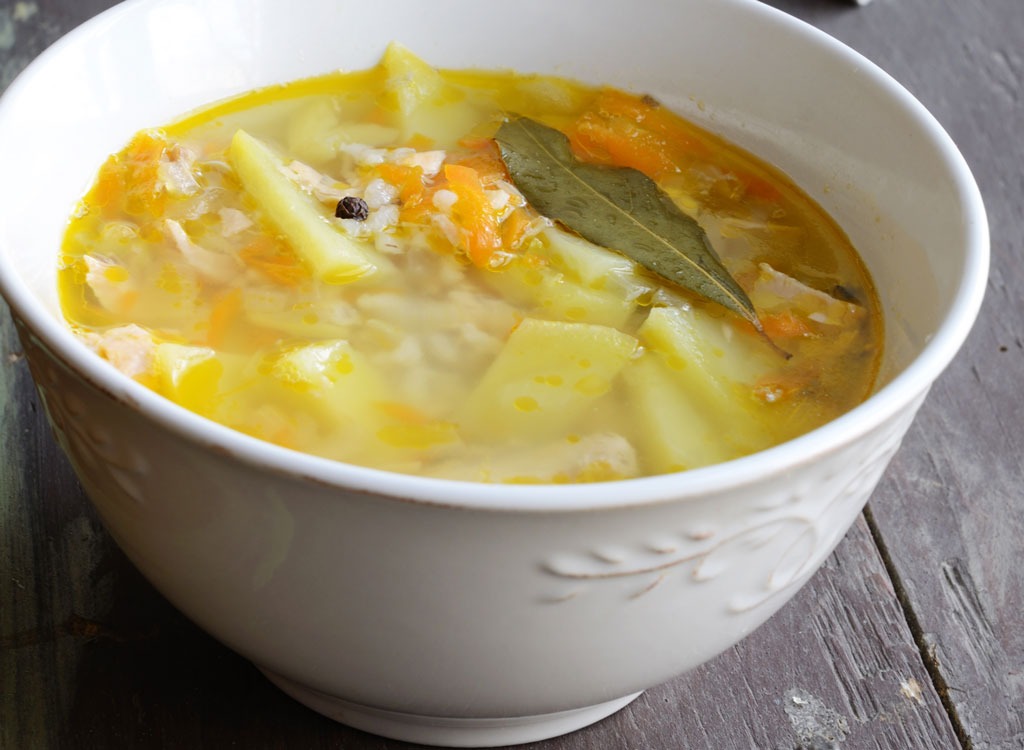
Price: $2.50/packet
Health Benefits: Bay leaf, or laurus nobilis, extract, has been shown to ward off seizures in rats, relieve upset stomachs, reduce wound inflammation, and even help lower cholesterol levels and control diabetes, according to a Journal of Clinical Biochemistry and Nutrition report.
Studies so far have shown that the leaf extract's healing properties can reduce inflammation in the wound area.
Use It In: This woody, sweet, citrusy, herb gives soup, stews, and sautéed dishes new life.
Eat This! Tip
Bay leaves are often used to flavor dishes, but they aren't intended to be eaten. After cooking, they become quite stiff so you run the risk of choking or scratching the digestive tract if you accidently swallow one. Eek! That said, be sure to remove them from your serving dish before digging in!
Chives

Price: $1.99/bunch
Health Benefits: Frequent consumption of garlic, onions, and chives is associated with reduced risk of esophageal and stomach cancers, according to the National Cancer Institute at the National Institutes of Health. For more foods that can extend your life, read up on these The 57 Healthiest Foods on the Planet!
Use It In: Onion's longer, thinner cousin, is most commonly used to flavor dips, baked potatoes, and quesadillas.
Eat This! Tip
Unlike bay leaves, which are used to flavor food during the cooking process, chives should be last minute addition to your dishes. The reason: the heat diminishes their yummy, oniony flavor.
Cilantro
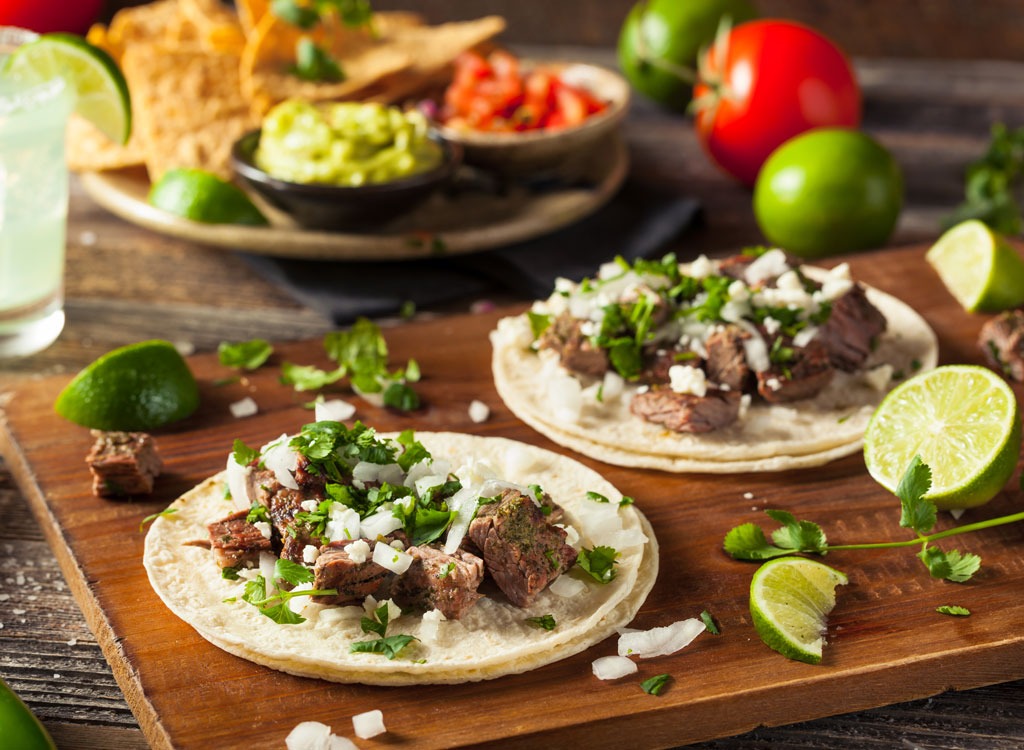
Price: $1.49/bunch
Health Benefits: A potent source of carotenoids, cilantro may help protect the body from cell damage that can result in disease and illnesses such as cancer. The nutrient has also been shown to maintain healthy teeth, skeletal and soft tissue, and ward off eye problems, according to the U.S. National Library of Medicine.
Use It In: Cilantro is more than a tasty addition to guac, salsa, and tacos. If you're a big fan of the herb, try it in rice, homemade salad dressing, stir-frys, and pasta salads, too. It also tastes delish mixed cream cheese and schmeared on a warm whole grain bagel.
Dill
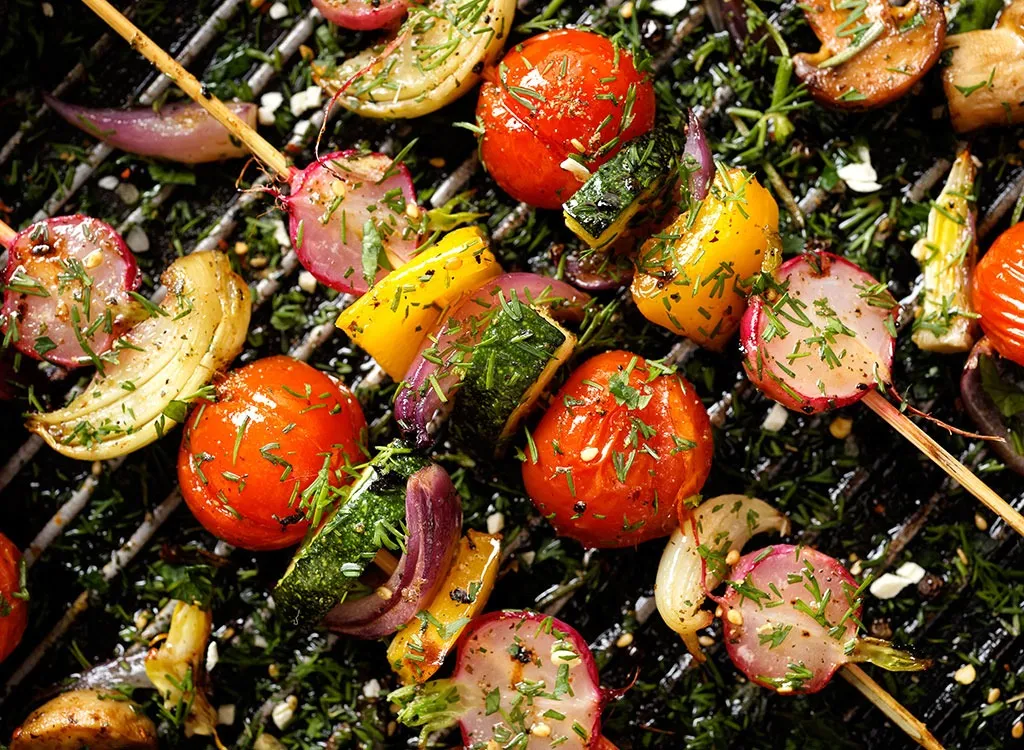
Price: $1.99/bunch
Health Benefits: This tiny, wispy herb may help the body detoxify foreign compounds, including carcinogens, which are substances capable of causing cancer.
Use It In: Fish, lamb, and egg dishes, as well as soups and potato salad. (Hint: Use vinegar or Greek yogurt instead of mayo to keep your potato salad nutritious.)
Fennel
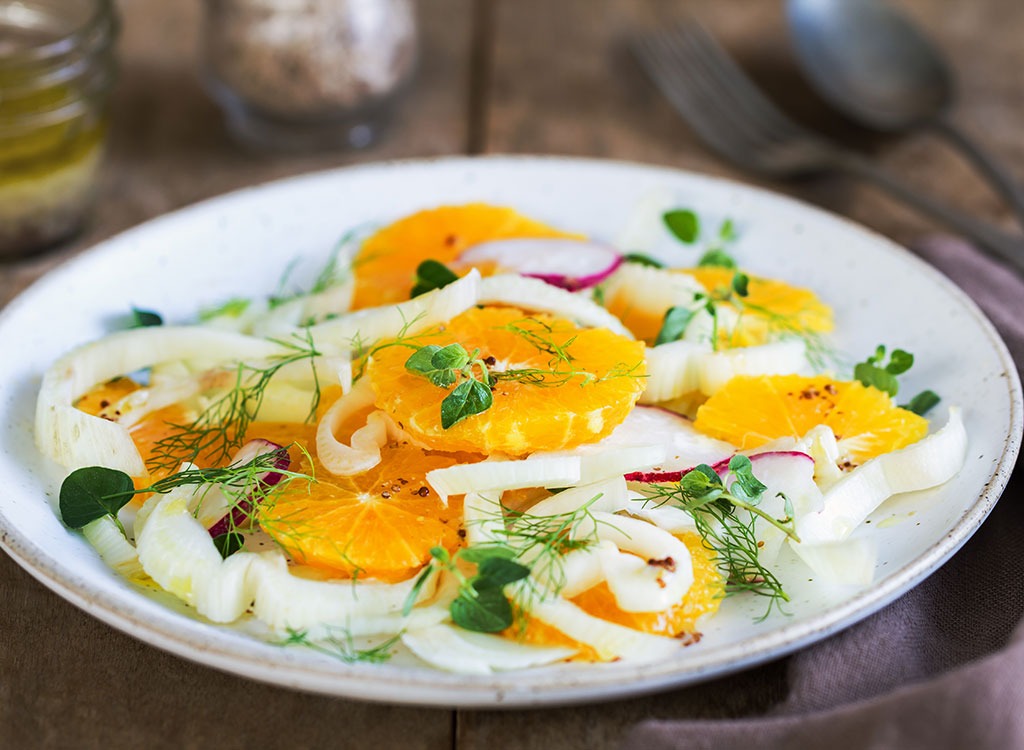
Price: $2.49/pound
Health Benefits: Fennel leaves provide vitamin C, satiating fiber, and potassium, a mineral most Americans don't get enough of. Potassium helps the heart and kidneys function normally, so to say it's vital is an understatement.
Use It In: While the leafy part of fennel is typically used in fish dishes and soups, the bulbs (pictured above) are usually eaten raw in salad form, or roasted or baked with chicken dishes.
Lemongrass
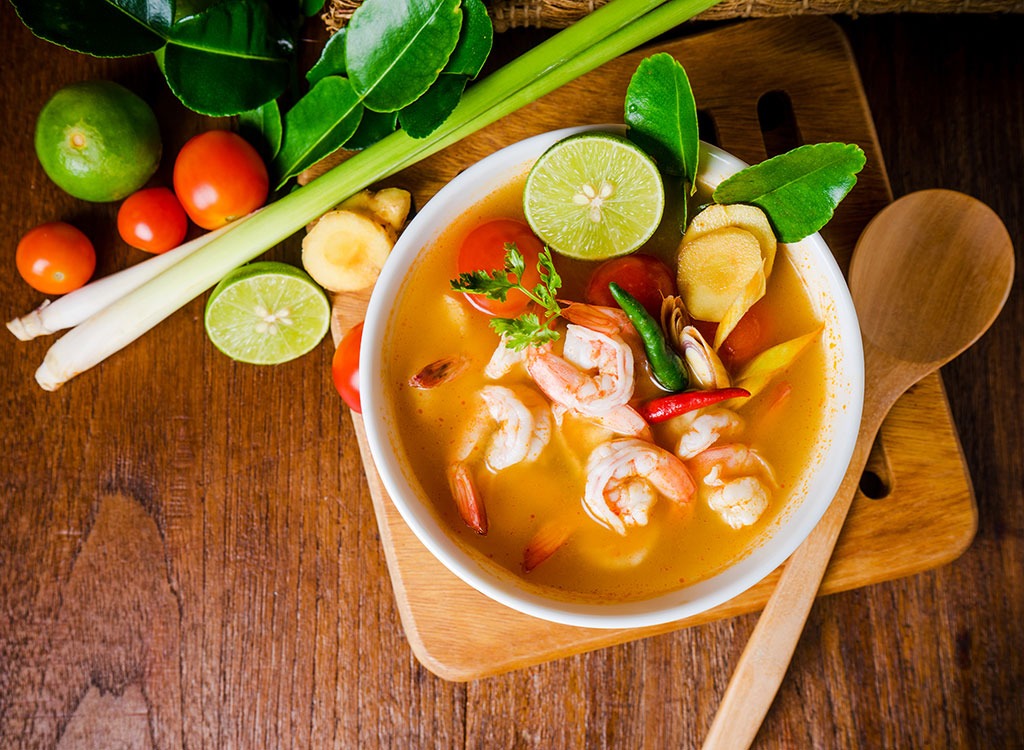
Price: $1.50/each
Health Benefits: This grayish-green herb has anti-inflammatory powers and was shown to have promising anticancer effects by reducing tumor cell viability, according to a study published in the journal Chemico-Biological Interactions.
Use It In: Asian soup recipes, Vietnamese and Thai dishes, rice, teas, sauces, and marinades.
Marjoram
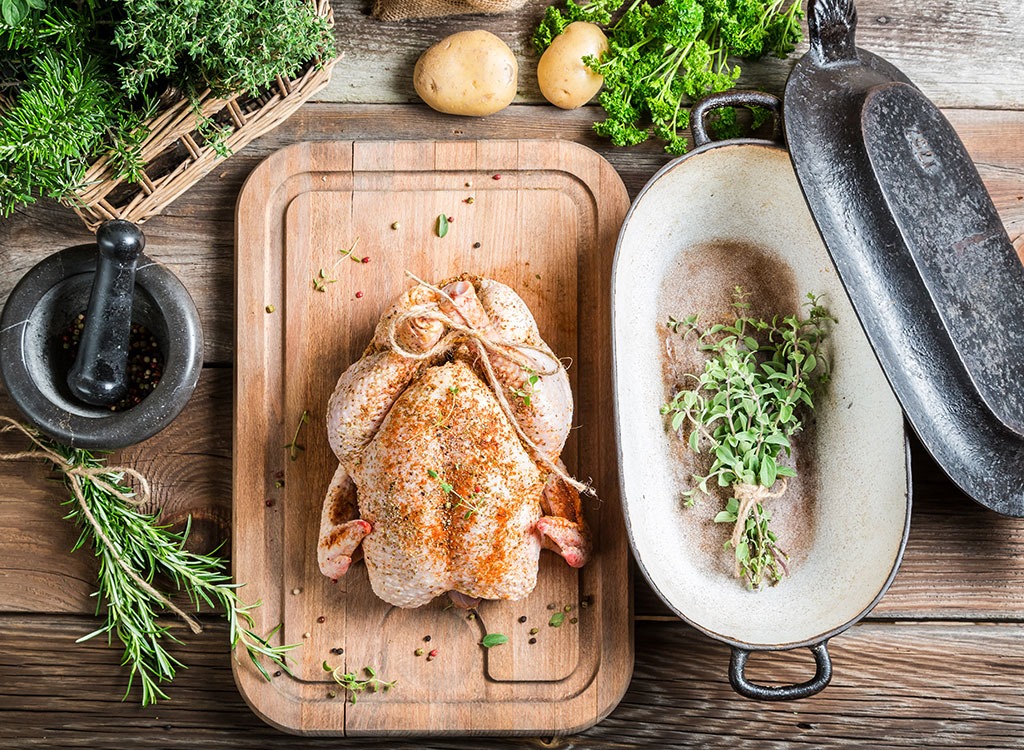
Price: $2.50/bunch
Health Benefits: Sweet marjoram, a member of the oregano family, contains a fair share of the mineral magnesium, which has been associated with a lower risk of colorectal tumors. Regularly consuming the nutrient may also ward off osteoporosis and high blood pressure, according to University of Maryland Medical Center experts.
Use It In: Beef and chicken dishes, sausages, cheese and tomato dishes, soups, and egg dishes.
Mint
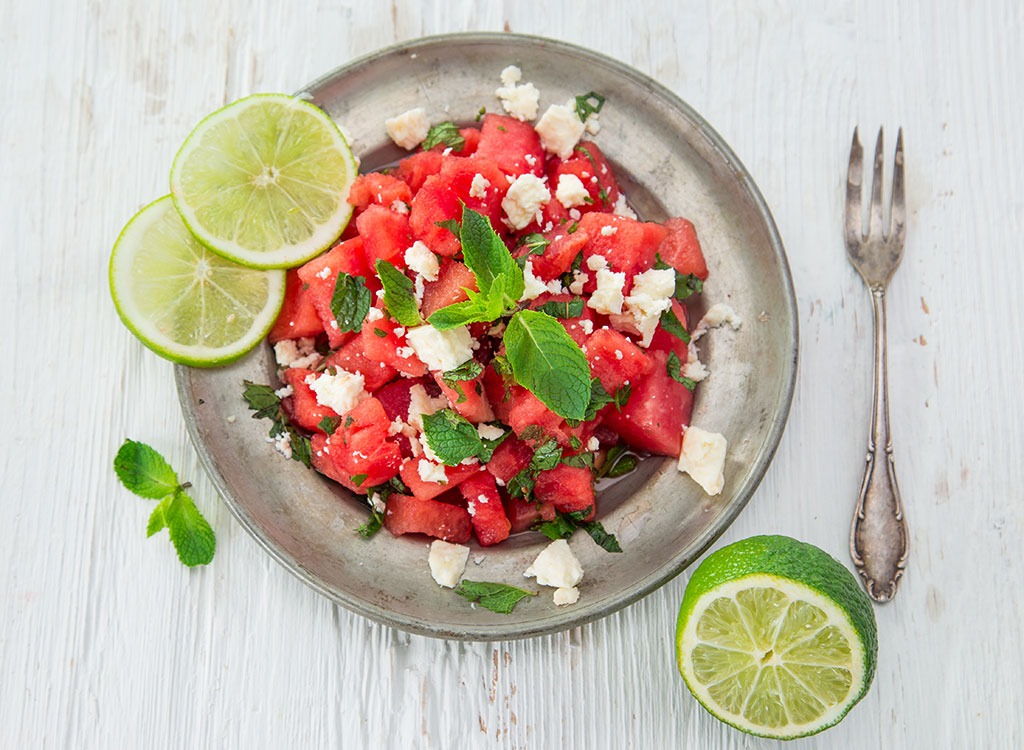
Price: $1.99/bunch
Health Benefits: Not only can the herb aid digestion, mint infused water is a home remedy for curing hiccups. It's also a powerful weight loss weapon. It works by stimulating the digestive enzymes that absorb nutrients from food and consume fat and turn it into usable energy. For more must-know benefits of mint, don't miss these 10 Surprising Things Mint Does to Your Body.
Use It In: From beverages and salads to main dishes to desserts, there are a million ways to use fragrant mint. To make the yummy, feta-topped salad shown above check out these 25 Watermelon Recipes You'll Crave,
Parsley
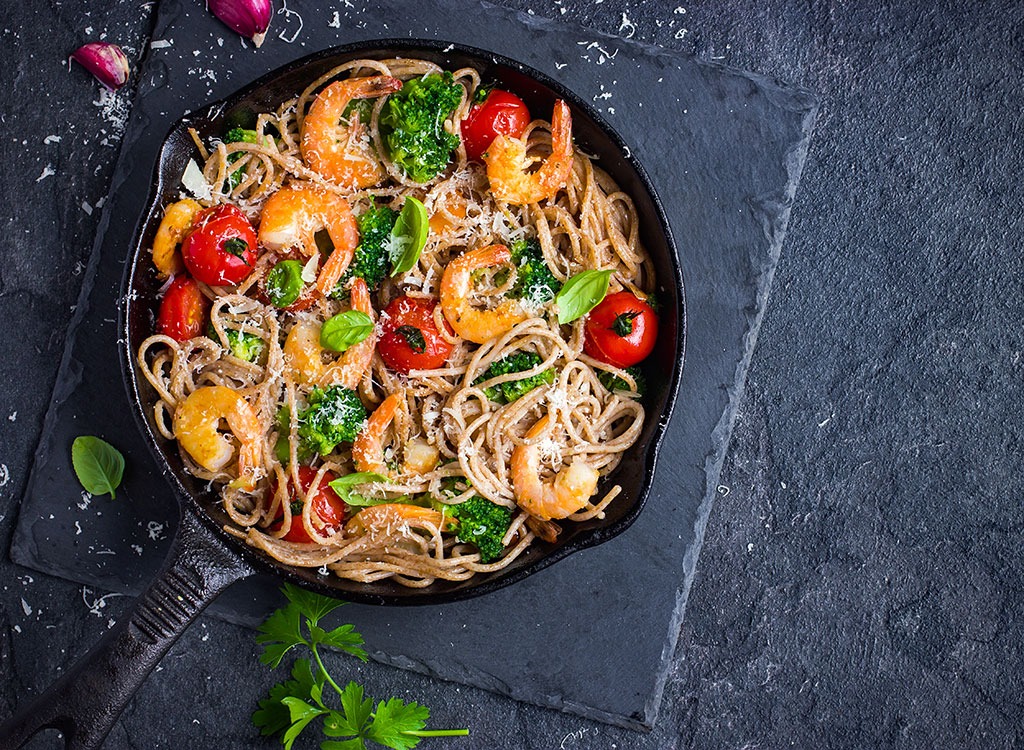
Price: $1.99/bunch
Health Benefits: Quercetin, a flavonoid that helps the body fight off cancer-causing free radicals, is abundant in parsley.
Use It In: Stews, soups and vegetable dishes.
Oregano
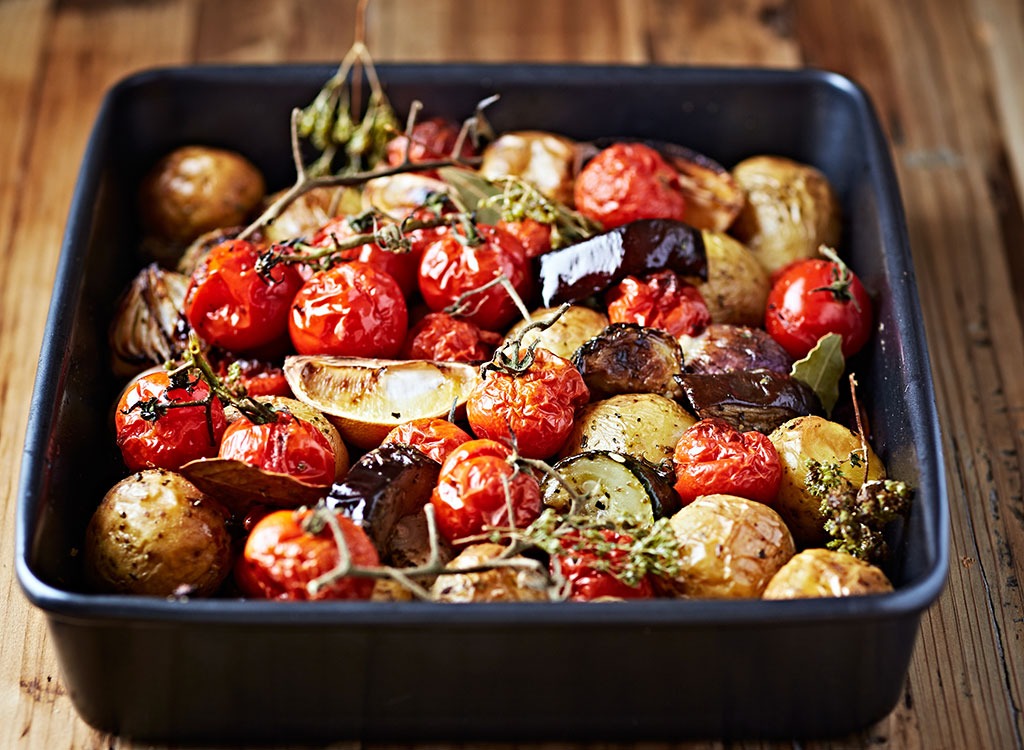
Price: $2.50 each
Health Benefits: A tablespoon of chopped, fresh oregano serves up about a gram and half of heart-protective fiber and six percent of the day's iron, a nutrient many American's don't get enough of. It's also a potent source of antioxidants, natural substances that may prevent or delay cell damage that causes chronic diseases like cardiovascular diseases, cancer, and cataracts, notes the National Center for Complementary and Integrative Health.
Use It In: Salads, soups, omelets and quiches, sauces, tomato dishes, pizza, and Mediterranean and Mexican dishes.
Rosemary
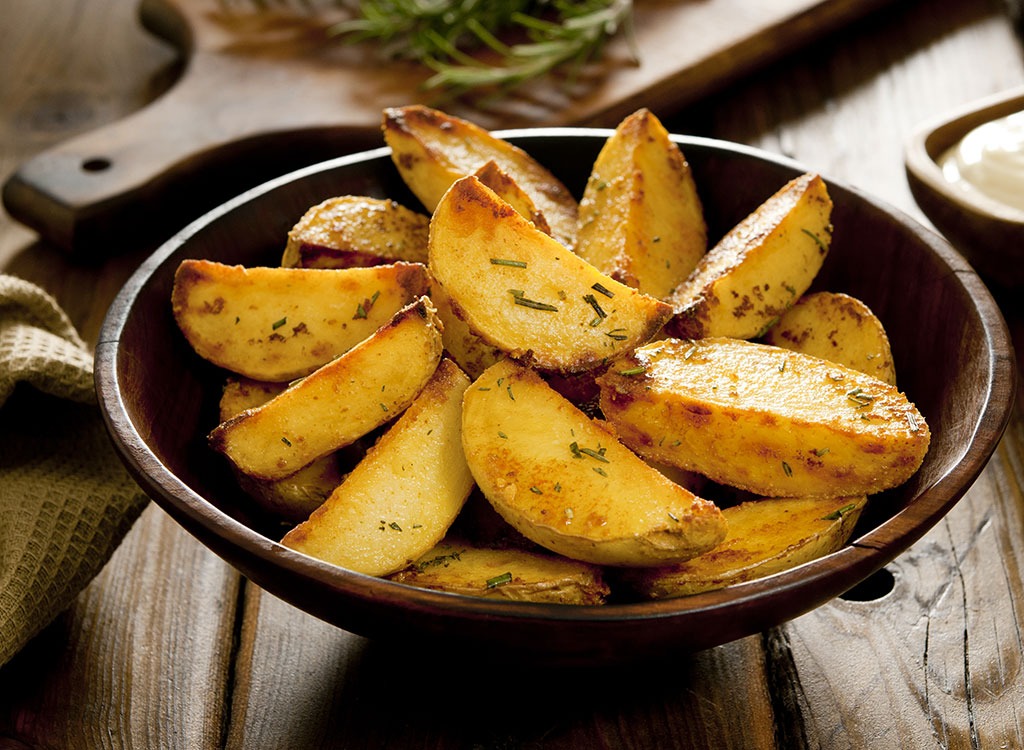
Price: $2.50/bunch
Health Benefits: According to experts at the University of Maryland Medical Center, rosemary, or rosmarinus officinalis, can inhibit food-borne pathogens like listeria and also
inhibit tumor growth by preventing cancer cells—especially those in the colon and breast—from replicating.
Use It In: Potatoes, roasted vegetables, fish, pork, lamb, poultry, and game meat.
Eat This! Tip
Rosemary is super pungent and can be overpowering if you use too much. Add it sparingly to your recipes!
Sage

Price: $2.69/each
Health Benefits: This slightly peppery, minty herb is packed with antioxidants, flavonoids, and phenolic acids, which may all decrease the risk of cardiovascular diseases like stroke and coronary heart disease which claim nearly 17 million American deaths each year.
Use It In: Fish, pork, and poultry dishes, vegetables, sausage.
Tarragon
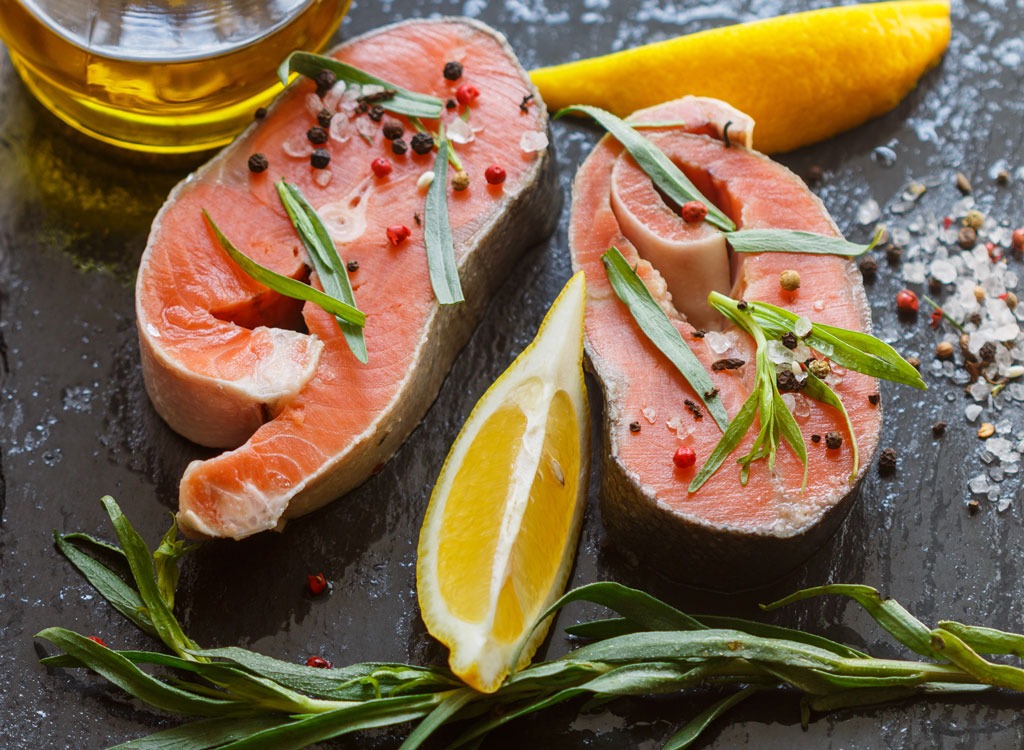
Price: $2.50/bunch
Health Benefits: Tarragon may help those with diabetes by reducing insulin levels and blood glucose levels, and preventing the elevation of glycosylated hemoglobin levels. It's also been shown to ward off diabetic neuropathy (a type of nerve damage) in mice.
Use It In: This popular springtime herb, which has a light licorice flavor, is used to flavor roasting chickens, salmon, veal, eggs. fava beans, asparagus, and carrots. (Love the crunchy orange veggie? Don't miss these 20 Carrot Recipes for Weight Loss!) It also fares well in homemade dressings and marinades, and French-inspired recipes.
Thyme
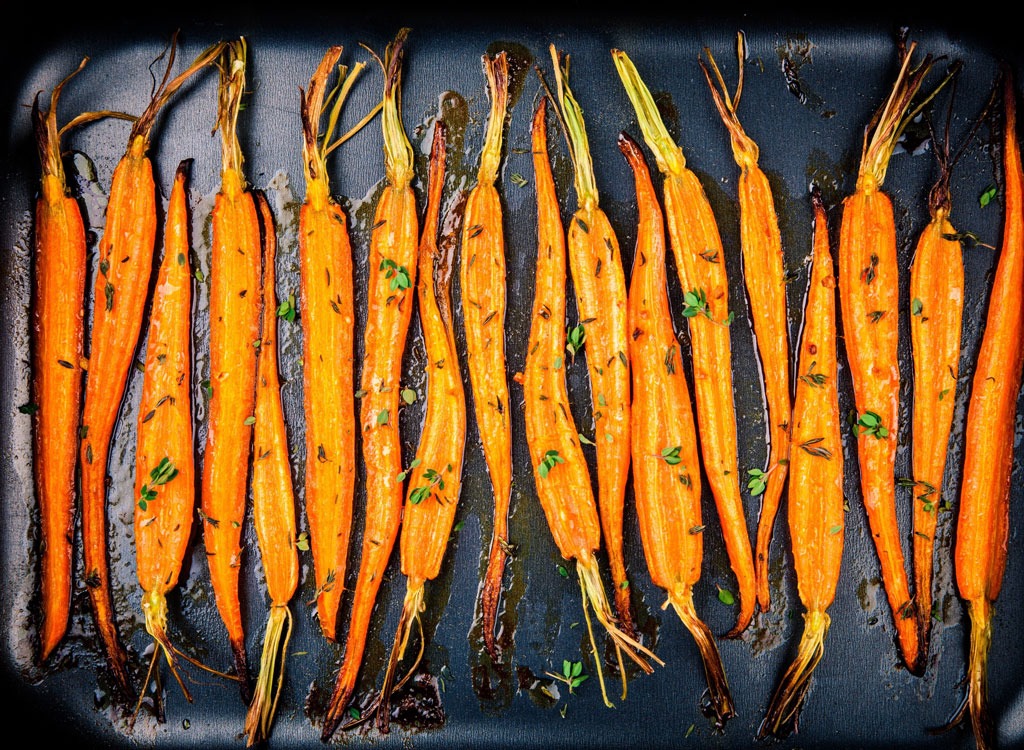
Price: $2.50/bunch
Health Benefits: This highly aromatic, lemony herb is known for its potent antioxidant content. It's also been shown to attack a bacteria called helicobacter pylori, that enters your body and attacks the stomach lining, causing ulcers.
Use It In: Rice dishes, French cuisine, dips, sauces, soups, stews, casseroles, stuffing and poultry dishes.
Eat This! Tip
Don't eat the woody stem! The pull off the yummy leaves, you'll need to first determine what direction they're growing, then run the back of a knife along the stems in the opposite direction.








